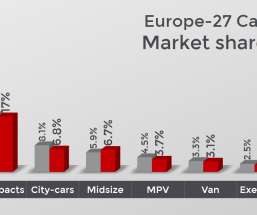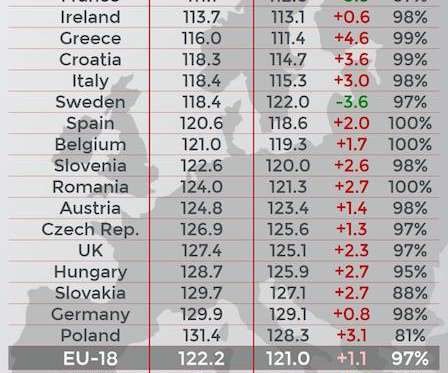JATO Dynamics: in decline of Euro new car market, electrified vehicles increase share to almost 13%
Green Car Congress
MARCH 27, 2020
The decline of the European new car market has continued throughout February. As of 29 February, JATO data has shown that the impact of COVID-19 had yet to hit the European automotive market. The increase of more than 80% came at the expense of diesel and gasoline cars which saw significantly fewer registrations. from last year.






















Let's personalize your content